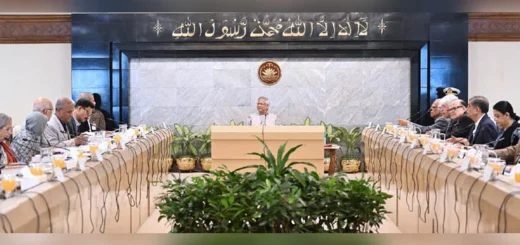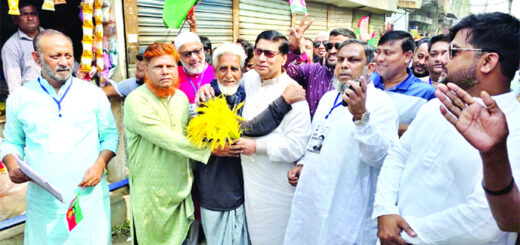Obaidul Huq : A legend in journalism

Kazi Liakat Hossain :
The nation today observes the 7th death anniversary of Obaidul Huq, a doyen and legend of journalism, with a heavy heart.
Obaidul Huq was born on October 31,1911 in Feni district. It’s a miracle that he was born in October and died in October as well. On Eid day, October 14, 2007, we got the news like a bolt from the blue that Obaidul Huq breathed his last the day before (13 October). In truth he was great with the great and lowly with the lowly.
I came to know of Obaidul Huq from late Mizanur Rahman and Nayeem Gahar, and had already painted an imaginary picture of this legendary person in my mind long before I actually met him.
Once I had an opportunity to attend a function where two giants were the main speakers, renowned philosopher and educationist late principal Dewan Mohammed Azraf and late Obaidul Huq. I immediately realised that I had come across a person (Obaidul Huq) who was every inch a gentleman with an amazing personality.
He used to deliver a quotation whenever the topic needed it. His style of speaking and narrating was wonderful. We junior journalists listened to his valuable speeches very attentively so that not a single word could slip from our minds. He emphasised the importance of clarity, directness and compactness of language. He wrote: “Unclear writing betrays a muddled mind.”
Obaidul Huq’s style of talking was smooth and clear, and he used quotations in a way that taught us a lot. He was called king of quotation. He was a film director, producer, script-writer, novelist, poet and journalist.
He obtained M.A.degree in philosophy from Dhaka University, and a Law degree from Kolkata. He resigned from Bengal Civil Service in 1944.
In 1946, this versatile genius made a successful film Dukkhe Jader Jibon Gora, but could not release it as communal tension was prevailing in Kolkata. He was urged by distributors of the film to change his name to Himadri Chowdhury, keeping in view their interests at the box office. He wrote a novel, Sangram, which was turned into a film called Azan. He had heartfelt love for our National Poet Kazi Nazrul Islam, who visited his residence in Feni.
He joined the then Pakistan Observer in 1951as Assistant Editor under A. Salam. He became editor of The Bangladesh Observer in 1972 and served till 1984.He later joined The Daily News (now defunct) as Editor and also became the Chairman of the Press Institute of Bangladesh.
He was a great satirist. He earned name and fame for his humorous and sometimes stinging and biting satires, which gave readers pleasure. He was a prolific writer. For his excellent writings and immense contributions to journalism, he won the prestigious ‘Ekushe Padak’ in 1983. In recognition of his literary genius he received the Bangla Academy Award for Drama in 1964. He also won a UNICEF Award for his courageous editorials in 1983.
In his last years he concentrated on writing columns mostly for Bangla dailies, particularly in Janakantha. He valued some norms, principles and ideals and those distinguish him as a writer, editor and above all a creative man. Creativity was his forte along with vast knowledge, and he could analyse and interpret events in a most objective manner.
He will mostly be remembered for his witty, saucy and insightful columns. I remember one day I was praised by this legend. I had written an article on Pahela Baishakh under the title ‘Pahela Baishakh : A Gala Day for Bangalees’, in which I wrote some words in the Bikrampur dialect. He was amused to read those words and praised me highly.
Whenever his face flashes in my mind’s eye I cannot control my tears. Let his spirit live amongst us forever. May Almighty Allah rest his soul in eternal peace.
Death is the golden key that opens the palace of eternity – Milton








